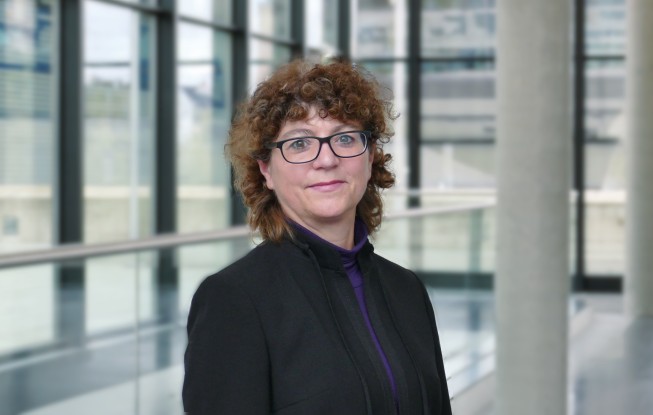The results of the survey conducted by the MINTplus (STEM) evaluation team at the outset of the first semester indicate that the majority of students believe themselves to be inherently suited to the role of teacher. The planned investigation will examine the reasons behind this conviction among students. The objective is to ascertain the source of this markedly positive self-assessment and its impact on the teacher training programme, with a view to encouraging or challenging this attitude as appropriate. This will be investigated through individual or small group interviews, in which the students' attitudes towards the teaching profession will be explored in greater depth. In addition, the individual process of choosing a career as a teacher will be examined, taking into account the participants' biography, motivation and ability to reflect.
Since 2023, the qualification to practice as a midwife in Germany can only be acquired through a Bachelor's degree. This was preceded by a transitional phase in which interested midwives completed a midwifery-specific or unrelated study complementary to their regular qualification as midwife. Their professional career is the subject of the doctoral project, namely to reflect the influences of a degree on the professional activity of an academic midwife and to classify it in the professionalization process of midwifery.
The cooperative supervision by Ms Prof. Dr. Ziegler (Technische Universität Darmstadt) with a focus on professionalization and Ms Prof. Dr. Greening (Hochschule für Wirtschaft und Gesellschaft Ludwigshafen) with a focus on midwifery science unites and enriches the perspectives, which are relevant to the project.
The formation of occupational preferences among adolescents is influenced by the intuitive congruence between their self-concept and occupational concepts that encompass various factors, including people, gender, activities, prestige, and realizability (Gottfredson, 1981-2005; Ratschinski, 2009; Steinritz et al., 2016; Engin, 2016). Occupations serve as projection surfaces for social and personal identity (Gildemeister & Robert, 1987; Howard & Walsh, 2010; Watson & McMahon, 2019). It is not uncommon for young people to exclude certain occupations rather than formulating concrete career goals, a phenomenon that can be described as the 'exclusion logic' (Gottfredson, 1981-2005; Mutlu et al., 2024). The choice of career is significantly shaped by the anticipated responses of the social environment (Eberhard et al., 2015; Matthes, 2019; Oeynhausen & Ulrich, 2020). Consequently, career aspirations are shaped by the interplay between identification and the need for social recognition, which often occurs in areas of conflict. Those occupations that fail to satisfy these requirements are eschewed.
This is where the concept of 'approval-sensitive career orientation' becomes relevant. The workshop, entitled 'Logics of Career Choice', was devised by the two institutions as part of the BIBB-TUDa career orientation study. Its aim was to ascertain whether young people can be encouraged to engage cognitively and motivationally with their (unconscious) need for recognition in the career choice process, and under what conditions this can be achieved.
As a consequence of the growing impact of digital technologies on the modern workplace, the nature of work and the world of occupational practice is undergoing a profound transformation. The potential of serious games for in-company training is considerable. They facilitate individualised offers that can be adapted to the specific needs of users and enhance learning motivation through their intrinsic playfulness. Furthermore, they can simulate complex situations from practice, such as dealing with machines in non-routine situations, without disrupting the operational process. They can also support the use of new technologies not only in terms of content, but also practically. However, the utilisation of serious games remains relatively limited. The objective of this empirical study is to analyse the potential of serious games for in-company training.
As part of her ongoing doctoral research, Caroline Tittel is examining the integration of decision theory with counseling practice. Using insights from descriptive decision theory, she is developing a categorization system that maps the interactions in specific counseling situations based on the decision-making behavior of the involved participants. This categorization system is intended to serve as a foundation for structured reflection in counseling practice, which can be beneficial for both training and supervision. Furthermore, the categorization system provides a basis for the integration and application of artificial intelligence in this field.
Thorsten Wenzler (external doctoral candidate)
Following the scientific and social debate on early childhood education, the focus has shifted to the professionalisation of the educator profession and the establishment of tertiary training courses for prospective educational staff. This development has been met with some controversy. As an alternative to the ongoing process of academic specialisation within the field of education, a curriculum for the 'Fachschule Sozialwesen/Fachrichtung Sozialpädagogik' is being developed that is aligned with the occupational requirements and structure of the profession. This is achieved through an analysis of models of professional pedagogical skill consideration of curriculum-theoretical approaches and reference to curricular principles for the development of vocational training programmes, as well as an analysis of existing framework curricula for the educator profession. Consequently, a curriculum is to be presented that systematically incorporates these references and the institutional and organisational aspects of training at the vocational school level.



